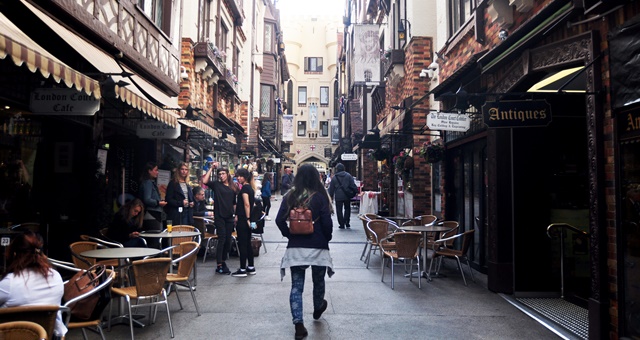
Average length of holidays to Australia continues to decline steadily, with trip duration having fallen from 26 days to 21 over the last five years, new International Visitor Survey data released this week shows.
All markets have contributed to the gradual decline except for China, which has gone in the opposite direction and extended its average stay from 10 to 14 days over the same period. This result has been attributed to a greater number of independent travellers staying for longer rather than visiting as part of a set tour itinerary.
Despite the drop in length of stay, average spend has been largely unchanged, with only a 1% fall to $4,300 per person aged 15 and up, largely due to increases in hotel room rates and the increased number of visitors overall, which has climbed 52% over the last four years.
Overall figures improved but only moderately, with visitor numbers in the year-to-end September 2019 growing by 3% to 8.7 million, visitor nights up 2% to 276 million and average spend up to $45.2 billion – a 5% improvement on the corresponding prior year.

Australia’s fastest-growing markets include India, up 12%; Canada, up 10% and Singapore, up 9%, while Japan also saw a 9% growth.
The results show ongoing improvement across all major metrics however the industry will now anxiously await the published outcome and impact expected to be heavily hit by the recent and ongoing bushfires, with the full impact expected to be realised over the next two surveys.
Ahead of the expected fire-related downturn, Australian Tourism Export Council Managing Director, Peter Shelley, said a whole-of-government approach must be taken to ensure Australia’s ‘Open for Business’ message is spread loud and clear around the world.
“ATEC undertook a survey of its members who represent both Australian based tourism businesses as well as Inbound Tour Operators – the people who sell Australian travel in-market – with 70% of respondents recording significant cancellations of travel to Australia by internationals.
“International visitors are cancelling because of fears around air quality, safety and the impact fires have had on our tourism offering as well as a lack of certainty on how long it will take for us to recover, so the sooner we can communicate a strong, positive message, the better,” Shelley added.
ATEC has estimated the industry will see a 10% decline in visitor numbers as a result of the bushfires and its resulting international media coverage.

